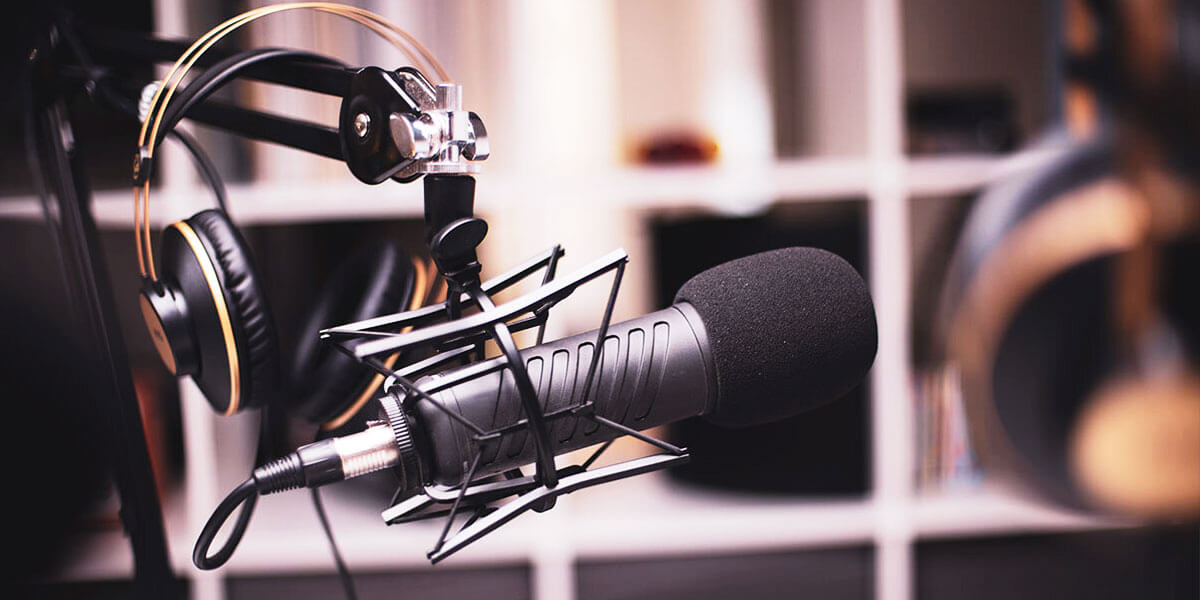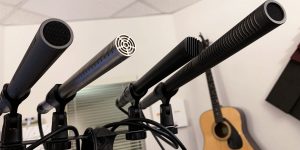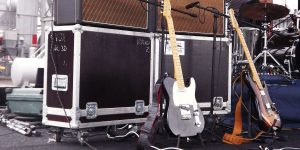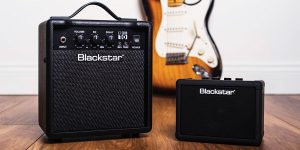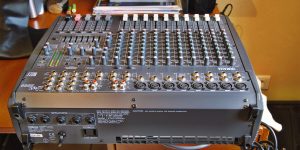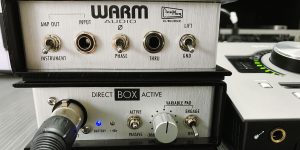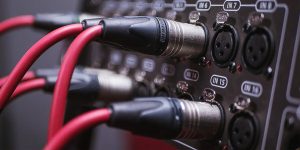Have you ever been in the spotlight, only to have your performance ruined by that annoying screech of microphone feedback? I’ve been there, too, and I know it’s a mood killer. But fear not! In my article, we’re diving into the world of microphone feedback: what it is, why it happens, and, most importantly, how to prevent it during your live performances. Say goodbye to those cringe-worthy moments and hello to flawless gigs!
Causes of feedback
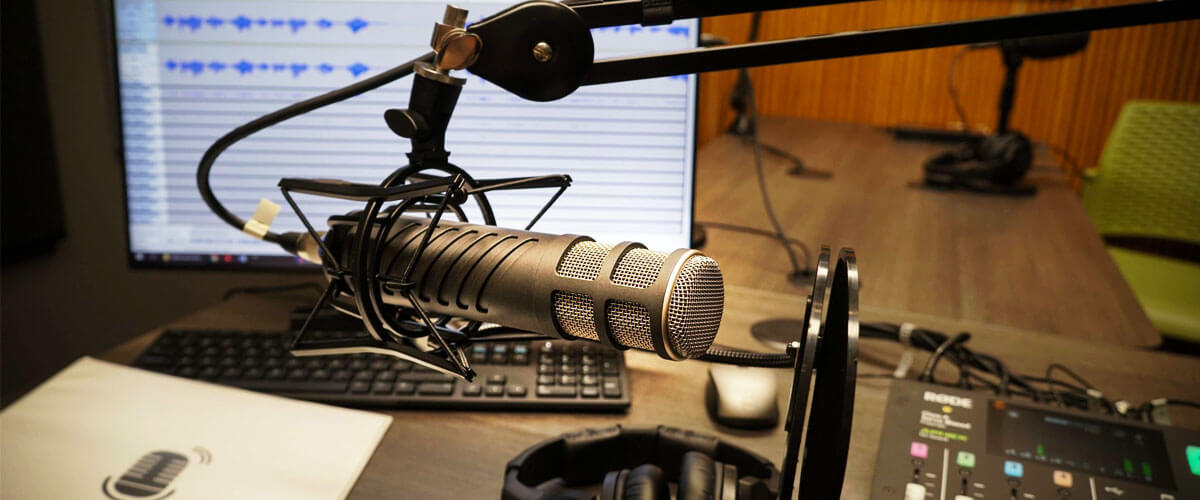
Feedback from speakers can be a real buzzkill during a performance, but understanding its causes can help both performers and sound engineers tackle the issue head-on.
Microphone placement
This one’s on the performers. If your microphone is too cozy with speakers or monitors, it can pick up their sound and spiral into feedback chaos. Stay vigilant about your mic’s proximity to these audio sources. Keep a safe distance!
High microphone gain
Here’s another performer’s responsibility. Cranking up the gain on your microphone might make you sound louder, but it also makes you more susceptible to feedback. Use high-gain settings sparingly, finding the sweet spot where you’re loud enough without inviting the dreaded screech.
Frequency response
Some frequencies are feedback magnets. Sound systems and room acoustics can conspire to amplify specific frequencies, causing that annoying squeal. While performers can’t change the room acoustics, they can identify problematic frequencies and communicate with sound engineers to make adjustments.
Speaker location
This one’s mainly in the sound engineer’s wheelhouse. Poorly placed speakers can direct sound straight into microphones, upping the feedback risk. Sound engineers should strategically position speakers to minimize this interference.
Room acoustics
Again, this falls under the jurisdiction of sound engineers. Room acoustics play a big role in feedback issues, especially in spaces with hard surfaces that reflect sound. Engineers can use acoustic treatments to tame these reflections and reduce feedback potential.
Preventing feedback
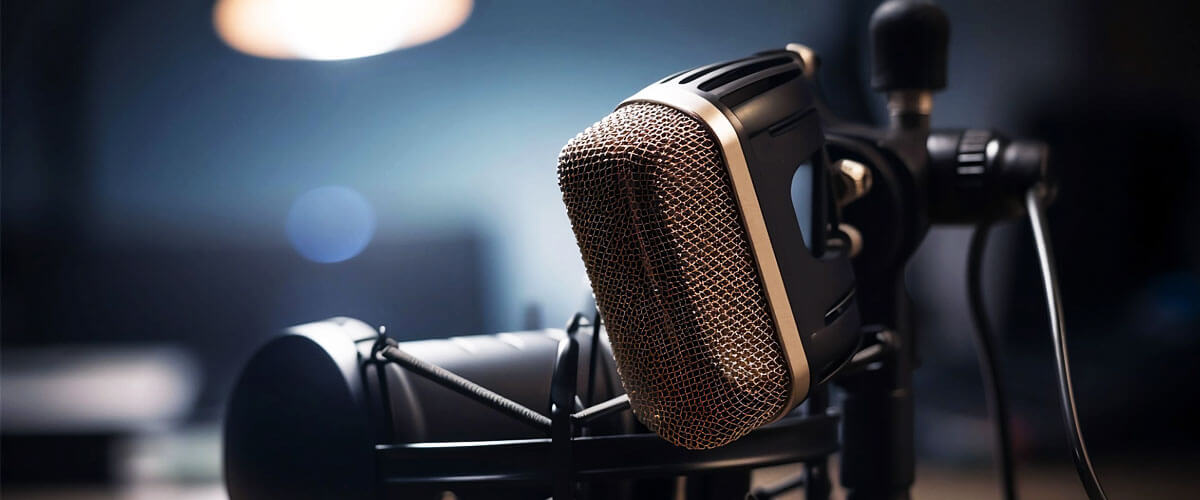
Now, I’m here to share valuable advice and personal experience on how to stop feedback on the mic and ensure your show goes off without a hitch.
- Soundcheck is your best friend: Before you even hit the stage, conduct a thorough sound check. This is where you spot potential feedback culprits. Test microphones, fine-tune speaker placement, and set monitor levels just right. It’s your first line of defense.
- Master microphone technique: Educate yourself and your fellow performers on proper microphone handling. Maintaining the right distance and positioning can make all the difference in reducing the feedback loop between the microphone and speakers. Get up close, but not too close!.
- Monitor placement matters: Position those stage monitors strategically. Make sure they’re not blasting sound directly into the microphones. Musicians, communicate your monitor mix preferences with your sound engineer to avoid feedback triggers.
- Tame the frequencies with EQ: Harness the power of graphic equalizers during sound check. Identify and cut problematic frequencies that tend to cause feedback. A little EQ adjustment can go a long way.
- Consider feedback eliminators: For complex setups, think about using feedback eliminators. These nifty devices automatically detect and squash feedback, sparing you the headache.
- Craft the perfect monitor mix: Ensure performers can hear themselves and other instruments clearly through their monitors. This reduces the temptation to crank up microphone gain unnecessarily.
- Speaker placement wisdom: Angle your speakers away from microphones and the stage to minimize direct sound spillage into the mics. This simple tweak can work wonders and fix feedback on the mic.
- Explore in-ear monitors: In-ear personal monitors are a game-changer. They snugly fit into your ears, isolating your sound from microphones and minimizing feedback risks.
- Address acoustic issues: In rooms with poor acoustics, consider acoustic treatments like absorber panels or diffusers. They help reduce sound reflections that contribute to feedback.
- Mind your gains: Lastly, be mindful of your microphone and amplifier gains. Avoid unnecessary boosts that could push you into the feedback danger zone.
Remember, reducing microphone feedback is a team effort between performers and sound engineers. With these tips in your arsenal, you’ll be well-equipped to keep those screechy feedback gremlins at bay and deliver a stellar performance every time.

